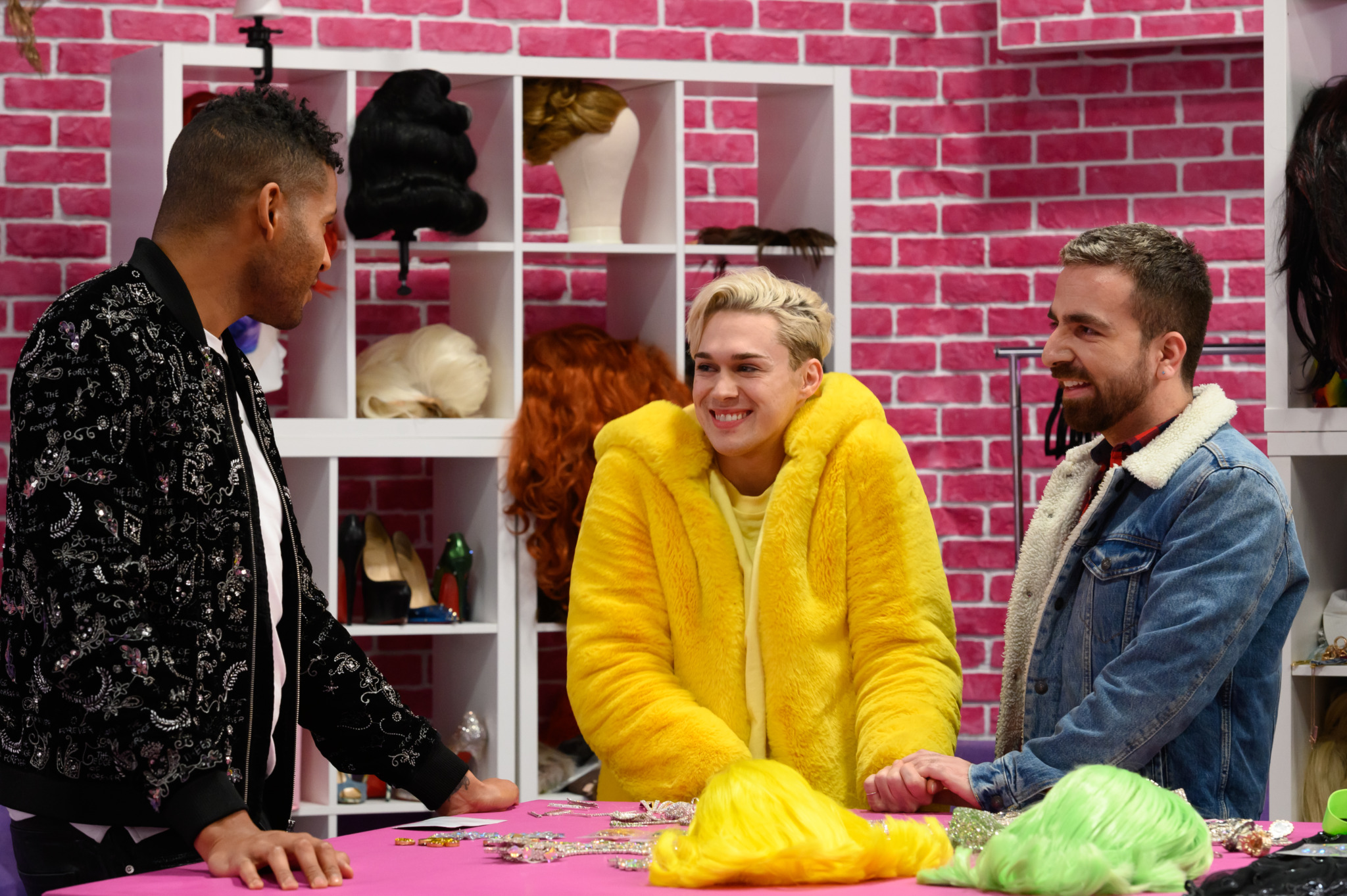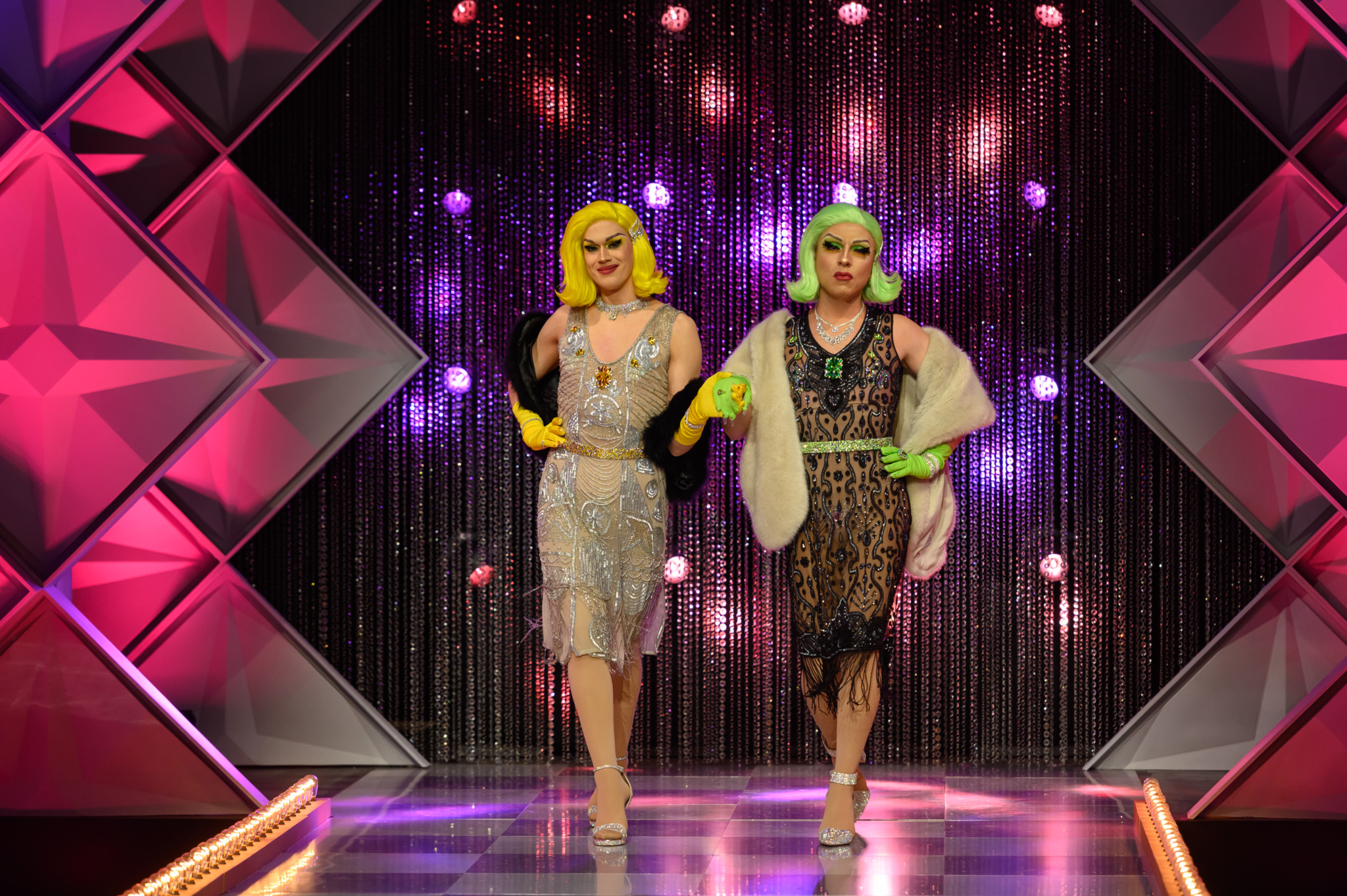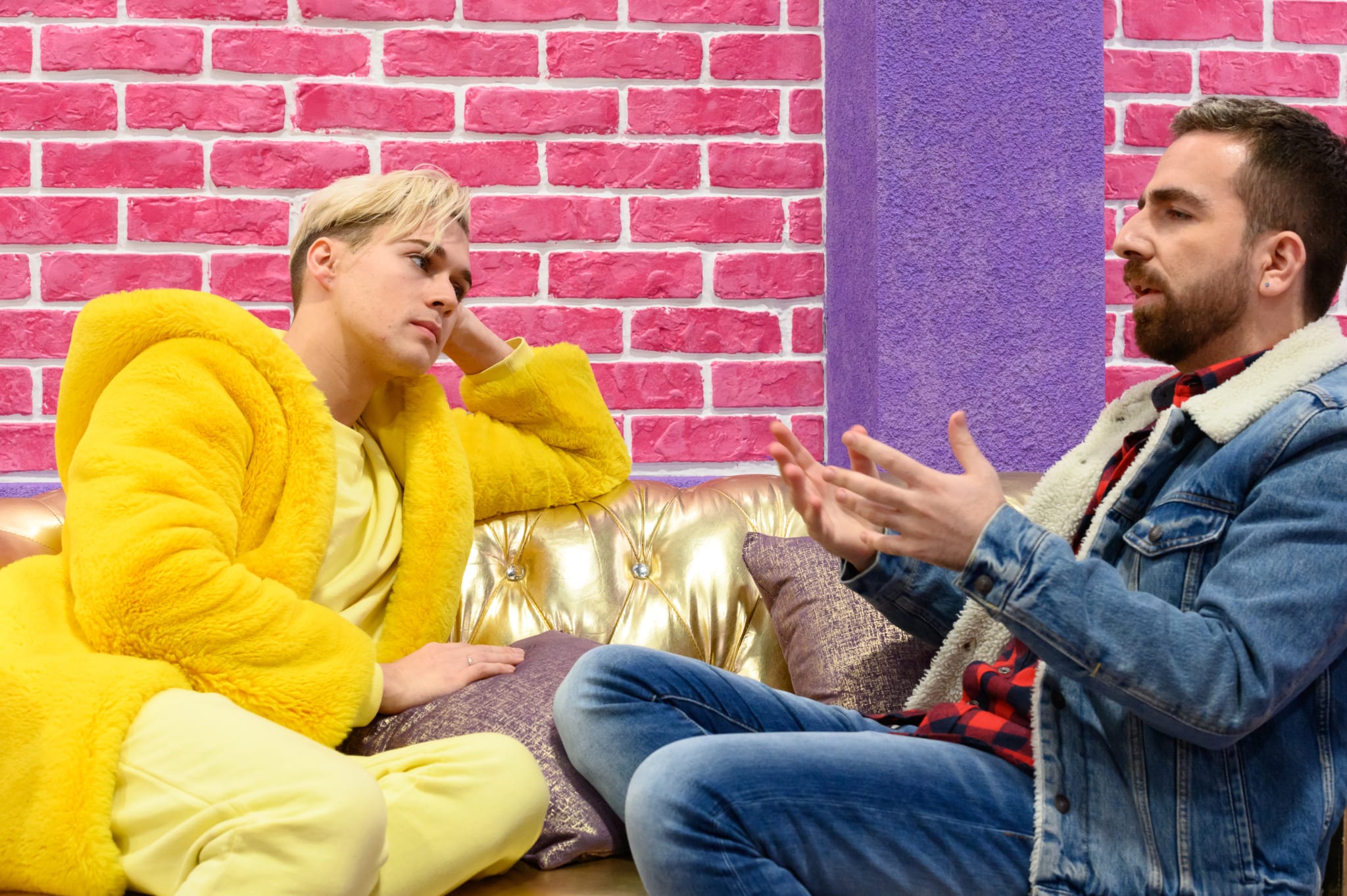Members of the LGBTQ2 community face unique persecution and violence in many nations around the world. Homosexuality is criminalized in 72 countries, and queer folks can be subjected to hate crimes, imprisonment and, in some places, the death penalty simply for being themselves. It’s a harsh reality that’s forced a large swath of queer and trans people across the world to escape their home countries and seek refugee status elsewhere.
Enter organizations like Rainbow Railroad, a Canadian not-for-profit that helps LGBTQ refugees safely relocate to countries where they can live free of persecution. On Thursday’s episode of Canada’s Drag Race, a handful of refugees who moved to Canada with Rainbow Railroad’s help got fabulous drag makeovers from the show’s remaining contestants.
“There’s something about drag that’s symbolic of how far we’ve come,” says Kimahli Powell, executive director of Rainbow Railroad. Powell hopes to communicate the queer refugee experience through Drag Race. “Understanding what it’s like for a newcomer to go through that experience, to go from being persecuted to being able to have this experience of living their life is what I hope translates.”
Rebal came to Canada from Syria two years ago. Canada’s Drag Race contestant Lemon transformed Rebal into his drag alter-ego, Lime, for Thursday’s maxi-challenge. He said he wanted to be “gorgeous and sour like his mother,” and with an assist from Lemon delivered just that. Rebal exuded confidence in the workroom and the runway, and though the episode didn’t end well for his newfound drag mother, Rebal positively shone. Xtra with Rebal about his time in Syria, Rainbow Railroad and how his life has drastically changed since he moved to Canada.

Credit: Courtesy of Bell Media
What was your situation in Syria when you first sought Rainbow Railroad’s help?
Being a member of the LGBTQ community would make you much more prone to harm. You feel like everybody hates you, everybody wants to take you apart and shrink you. It’s very much systematic. You just feel like everyone’s against you. The more feminine you look, the more you show that you are not heteronormative, the more prone to harm you would be.
Given those circumstances, how difficult was it for you to make the decision to leave?
I didn’t have much of a choice. I was like, “I can’t take this anymore. I have to move somewhere else because I can’t imagine my life being here forever.” It’s just not sustainable. No matter how hard I tried to hide myself, no matter how hard I tried to be something I’m not, no matter how hard I tried to impress people, no matter what I did, it was never enough for them. It’s not easy to hide who you are or try to act in a certain way and live in constant fear of being exposed to friends and family. You can lose your job. You can be sent to prison. People could harm you physically. Depending on which part of the country you live in, you can be killed. Basically, the decision was like, “I’m done with this, I just need something more sustainable.”
How were you connected to Rainbow Railroad?
Rainbow Railroad helped me move here. And then when I moved here, they made me feel like I am part of the community. That is truly important in a place where you don’t know anybody. It made me feel like I belonged to something bigger, something really nice, something welcoming and affirming. I just feel safe because they always have my back if anything happens.
What did you know about Canada before you came here?
I had the concept that it’s very welcoming and people are nice. The way I was exposed to Western culture was mostly through TV series and music and films, so when I moved here, I was like, “Oh my god, it’s like I’m inside a movie!”
What was your first impression when you first arrived in the country?
Nobody makes you feel like you don’t belong. In American media nowadays, you hear stuff like “go back to your country.” I’ve never heard such a thing. It’s people from different ethnicities, people from different social pools. You just feel like everybody’s going in harmony. You don’t feel like you’re ostracized or an outcast or like you don’t belong. Everybody’s so welcoming.

Credit: Courtesy of Bell Media
Did you think you’d ever end up in drag?
I was not exposed to drag culture in Syria because it’s not really big in the Middle East. The first drag queen I ever met was Tynomi Banks, I was like, “this is really nice!” Then somebody told me about Rupaul’s Drag Race. And then, maybe six months before we shot the episode, I got addicted to it. I started binge-watching it. And after shooting the episode, I became a fanatic. I know every single episode and quote.
What was it like for you to become Lime on national television?
Two years ago, I fully didn’t know what drag was. But I tried it a year ago, and thought it wasn’t for me. But then I watched Rupaul’s Drag Race, and I did this experience. It’s just a wonderful experience and very, very exciting.
Does that mean we can expect Lime to show up at our local gay bars sometime soon?
Potentially!
How does it feel to represent queer Syrians?
I never expected myself to be a representation of the Syrian queer community. Advocacy in drag never occurred to me as something that would happen, but I’m so happy I did it.
How has your life changed since you got to Canada?
Everything is different. I’m much happier. Life is kind of boring but in a nice way. When you have that much trouble, you’re always running. Now it feels relaxing to be able to just do normal activities like any other human being. That’s a good thing. Back then, I was a very shy person. I was always policing my words and the way I express myself. I was not able to be who I am—not even a little bit. Now, I can just be the way I want to be. I can embrace myself, I can love myself. I can be who I am and that’s totally fine.
What message would you want to send to queer refugees?
We are here for you. We hear your voice. You are loved, you are validated, and no matter how you feel or what you think, it’s all true. You should never try to deny who you are, or try to change a thing about yourself because you are gorgeous the way you are. You have the right to be fearful for your life, but know that we are here for you, and hopefully, soon you will reach safety. To people who just moved here: it’s difficult, life is hard. But with love, it can be changed. So just try to take it easy on yourself. Try to find your circle, try to find your chosen family. There’s only one way things can go, and it’s always good.


 Why you can trust Xtra
Why you can trust Xtra


